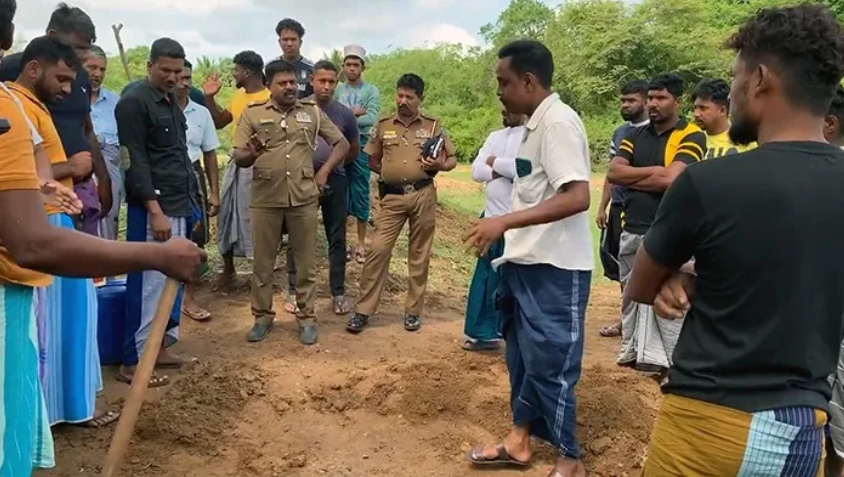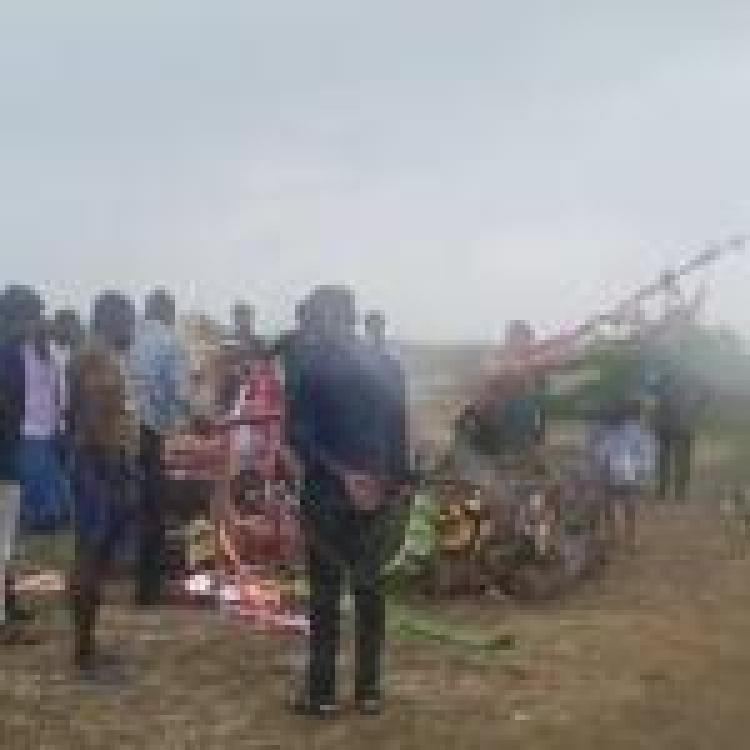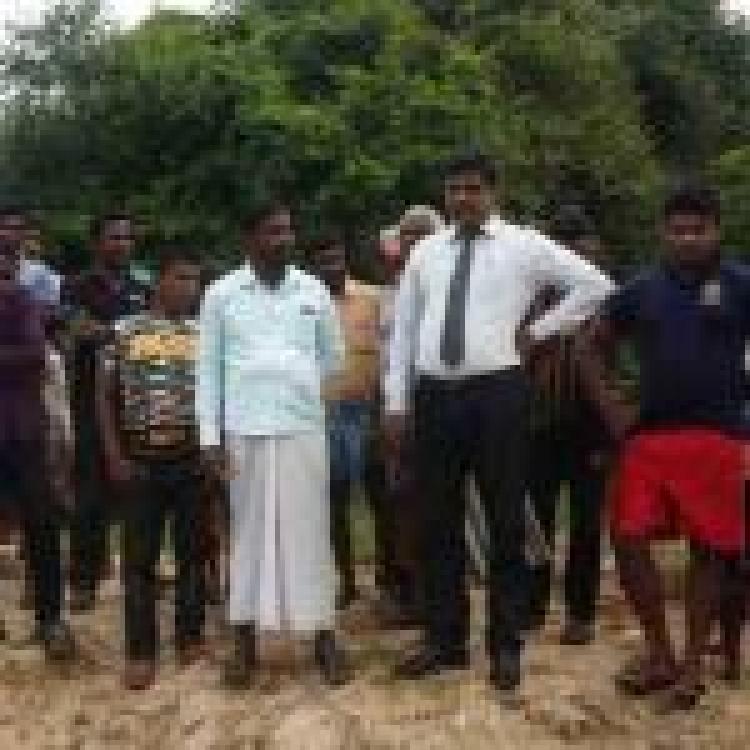
Tensions escalated in the Eastern Province last week when Sri Lankan police attempted to prevent the burial of a Muslim woman in Ponmalaikuda, based on false claims made by an extremist Sinhala Buddhist monk.
The issue arose when residents of Ponmalaikuda and Pulmoddai villages were preparing for the burial. Police officers at the occupying station in Kuchchaveli intervened, claiming that the land was under the jurisdiction of Sri Lanka’s Department of Archaeology and instructing the villagers to halt the funeral. This burial ground, located within the Kuchchaveli Divisional Secretariat in Trincomalee District, had long been used by local Muslims for such purposes.
The local Muslim community resisted these efforts and eventually managed to continue the burial.
The police's actions followed a complaint lodged by Panamure Thilakawansa, the chief monk of the Arisimale Temple and a member of the Presidential Task Force on Archaeological Management in the Eastern Province. Thilakawansa Thera asserted that the land belonged to the Department of Archaeology, but his claim was refuted by the villagers, who maintained that the area had always been a Muslim burial ground.
The Kuchchaveli Divisional Secretary was informed of the situation and clarified that the disputed land was indeed reserved for Muslim burials, not for archaeological purposes. After this confirmation, the police withdrew, and the burial proceeded as planned. This incident highlights the ongoing land disputes in the Eastern Province, where Sinhala Buddhist monks have been accused of encroaching on lands traditionally owned by Tamils and Muslims. This particular monk is reportedly involved in multiple court cases regarding such land disputes.
A similar issue occurred in the Nagathalvu village in the Mannar District, where Tamils were barred from performing funeral rites due to claims that their cemetery fell under the jurisdiction of Sri Lanka’s Department of Wildlife. Despite promises of a public cemetery for future use, the matter remains unresolved.
These incidents underscore the ongoing tensions over land ownership in the North-East, where the Sri Lankan state for decades has been engaged in a process of colonisation and Sinhalisation.


